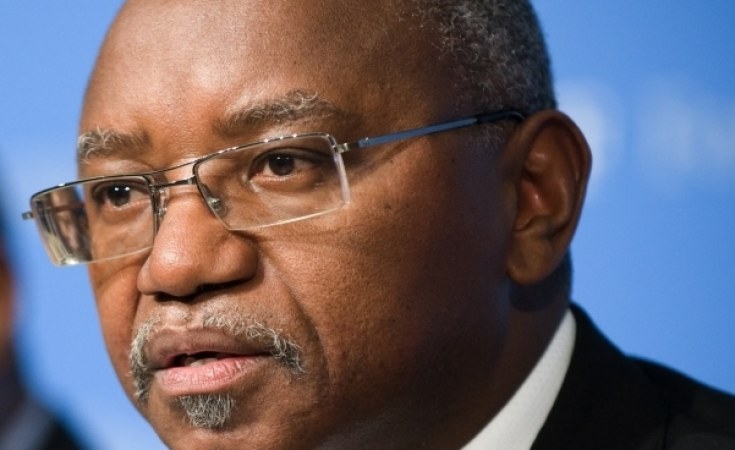Kinshasa — While I was president of the Central Bank of the Democratic Republic of Congo (DRC),we pursued fiscal and monetary policies that paved the way for 9.2 percent economic growth last year.
Other African countries also achieve sustainable growth. But to do this, they need to provide predictability for investors, reduce the reliance on extractive industries and develop human and physical capital.
As a prerequisite for growth, policymakers must stabilize their currency. When I joined the Central Bank, the DRC experienced hyper-inflation, had four different currencies and devaluations on a daily or even hourly basis. We introduced a new, stable, floating currency whose value, as with most countries' currencies, is determined by the market. Our inflation rate normalized from 10,000 percent-per-year to single digits below 3 percent-per-year.
How can sub-Saharan economies achieve long-term growth despite the ups-and-downs of international trends?
Together with stabilizing currencies, strengthening the rule of law provides the predictability, the security for property and contract rights and the level playing field that foreign investors and domestic entrepreneurs need in order to build businesses and create jobs.
That is why the rule of law, an independent judiciary, and an honest and transparent government are essential economic policies as well as genuine political reforms.
Fighting corruption benefits businesses by cutting 'hidden taxes' - bribes and kickbacks to government officials, which entrepreneurs must pay to stay in business. Similarly, when governments are cleansed of corruption, such as padded contracts and 'ghost employees', they will have more money to invest in healthcare, education, infrastructure and other essentials for economic growth.
In addition to political stability, African countries should offer new incentives to investors and entrepreneurs. Instead of heavy-handed government interventions in the economy, business-friendly policies should be implemented. Eliminate punitive taxation. Reform regulations. Streamline the approval process for new businesses. And set-up a simpler but effective tax system where businesses can report their incomes online.
Moreover, governments and businesses should work together to diversify the economic base. While Africa benefits from being resource-rich, endowed countries need to wean their economies away from over-reliance on oil, gas, minerals and other commodities exports. Countries should develop other sectors including agriculture, manufacturing, services, tourism and technology.
Too many countries have relied on extractive industries instead of developing their most important resource: their people's skills. In addition to improving literacy and other basic skills, nations should ensure that the education system provides the people with the skills they need in their job market.
Elementary and secondary education should include exposure to business, accounting, banking and technology. Not all young people need to be prepared for college. But, all need to be prepared for real jobs in sectors such as technology, engineering, construction, agriculture and management.
In particular, African countries need to educate and empower an underrepresented half of their population - women. They can't move forward while holding back women. Nations need to hire and promote more women in leading positions, either public or private. When I started at the Central Bank in DRC, only one woman was a bank director. I set a goal of having women in 30 percent of the management positions, and we reached 28 percent.
Together with education and agriculture, government spending should target infrastructure. With more than two-thirds of the population of sub-Saharan Africa lacking electricity, power generation and distribution lines should be a top priority. Next are roads, highways, railways and ports in order to move goods from producers to domestic and foreign markets.
If we could manage hyper-inflation and Macro-economic instability in DRC, others can do it - with the right policies.
As an added benefit, improving transportation will allow improved access to healthcare and education – two more essentials for economic growth.
From fiscal responsibility to investments in infrastructure and education, African governments can make the right decisions that will promote economic growth and shared prosperity.
If my own country could find a way out of hyper-inflation and macro-economic instability, then all the countries in the continent can travel the path to growth and development that so many other economies have taken, from East Asia to Eastern Europe.
Jean-Claude Masangu Mulongo has served as governor of the Central Bank of the Democratic Republic of Congo ((1997 through 2013), as well as president of the G24 of the International Monetary Fund, deputy governor for the DRC of the World Bank and president of the African Central Banks Association.


